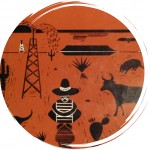
In her essay “Myth in the Modern World” distinguished University of Dallas Professor Louise Cowan outlines the three most common ways in which myth has come to be understood today:
- Falsehood or lie: “something contrary to historical fact or counter to scientific evidence”
- Mythology, i.e. “fanciful tales of pagan gods describing events once, unaccountably – in ‘olden times’ – given serious credence” (3)
- A “mode of truth [which] codifies and preserves moral and spiritual values” (4)
Undoubtedly the casual reader is more familiar with the first two meanings just given and much less familiar with the third. To a substantial degree, it is the aim of Mythfire to redress this imbalance.
As mentioned in the previous blog, settling on one definition for myth can be more than a little vexing. For the purposes of this entry — (primarily that of clarity) –Cowan’s work will be used to facilitate an understanding. Other thinkers on myth will be brought in later on.
So – what else does Cowan say about this value-giving “mode of truth” that she calls “myth”?
“A myth . . . is rather a cultural phenomenon, bespeaking a particular set of household gods for any one people, encompassing its customs and mores, and coming into being when a community intends to found a social order, rather than simply to be an aggregate. . . . Yet [myth] remains inarticulable and in large sense unconscious, even though it is expressed in the community’s major symbols and lived out in daily experience.” (12)
“Myth, then, as I have been depicting it, is a participatory intuition of reality, a revelation, rather than an invention: ‘At the beginning stands always a god,’ as Walter Otto has insisted.’ Myths do not create or imagine divinity; they respond to it in a vital and dynamic psychic configuration that gives rise to an entire culture, its arts, games, stories, manners and codes, laws and customs, images and ideas, philosophy and religious rituals (as distinct from the content of its religious faith, which is a given).” (14)
“A shared spiritual response to a revelation given to a people at the time of their becoming a people – that is, finally, the way in which I should like to define myth.” (14)
Even though this essay, taken from the book Texas Myths, provides a very workable initial interpretation of myth, there is much that will need to be developed as Mythfire moves forward, more questions needing to be asked. Only some of them that come to mind:
- Given the first and second quotes on myth above, and in light of statistics that indicate a current drop in attendance at church, mosque, and synagogue, is myth “a cultural phenomenon” that is going the way of the dodo? Or, might a claim be made that myth is not the exclusive property of conventional religions alone but is, rather, still evident in ways large and small?
- For example, might capitalism (and/or democracy) be today’s socially binding myth replete with its own household gods and major symbols, with related arts, games, stories, manners and codes, laws and customs, images and ideas, philosophy and rituals? If yes, what might the study of myth teach us about capitalism? What about politics? (After all, Cowan writes “According to its defenders, myth is not necessarily racial, but political, in the ancient sense of the word polis, that is, pertaining to a people who are bound together less by bloodlines than by living together in a communal attempt to found and to perpetuate a good society” [4]).
- What does myth tell us about intuition and revelation which Cowan also mentions? What about god(s) and their origin? What, then, are the religious and metaphysical implications of myth?
- Does myth have to be “shared” in order to be myth? In what ways is this shared response conscious and in what ways unconscious?
No, Mythfire will not shy away from the religious, metaphysical, or political (even if generally emphasizing the psychological) implications in its exploration of myth.
Toward this end – and toward a further working at myth’s definition – a follow-up entry will briefly look at none other than the head of the Catholic Church.
———

